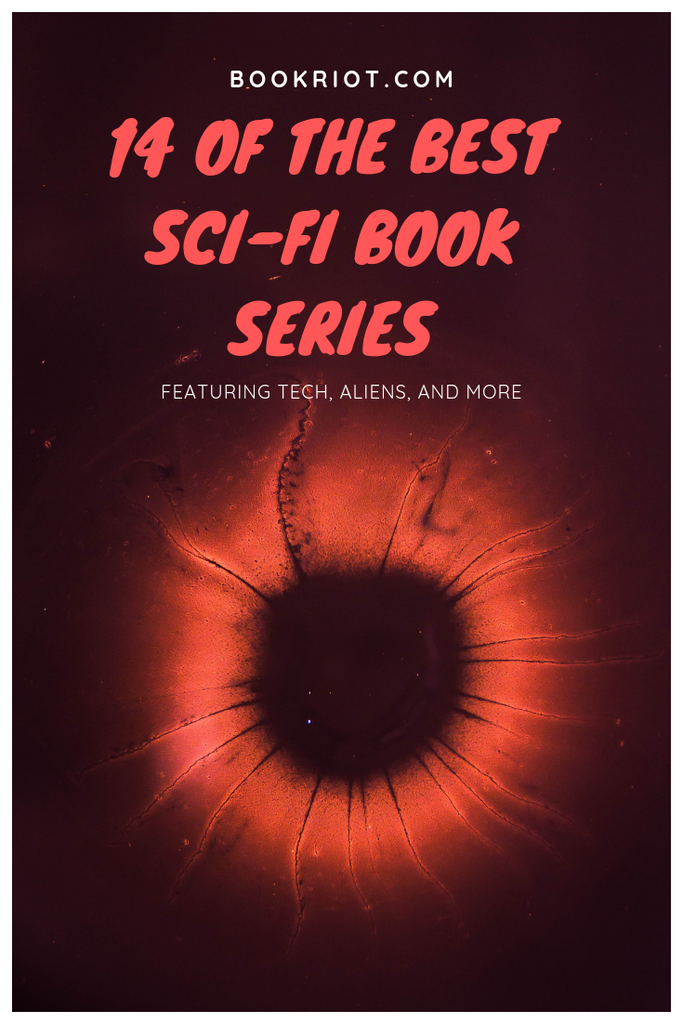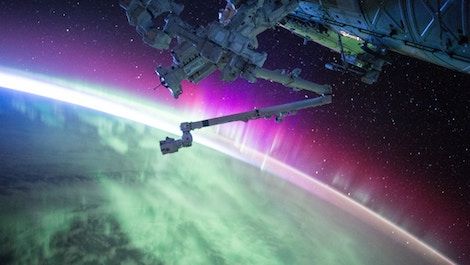
14 Of The Best Sci-Fi Book Series Featuring Tech, Aliens, And More!
Sci-fi is a great genre to consume as a book series. There’s plenty of time for the author to create a world you’re excited to get lost in—without sacrificing compelling character development. These are some of the best sci-fi book series grouped by themes: 1) technology, 2) world building, 3) society/people, and 4) aliens. Let’s get to ’em.
Best Sci-Fi Book Series With Technology Focus
These reads go a step further in the technology realm either through how realistic they feel (i.e. hard sci-fi) or via the masterfully imagined technologies employed as a main plot point.
Night’s Dawn trilogy by Peter Hamilton
Reality Dysfunction, Neutronium Alchemist, The Naked God
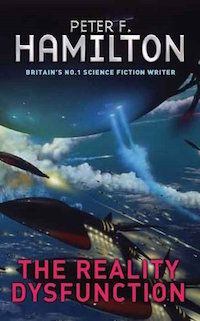
Though this series heads in a direction that I consider pretty unusual for a sci-fi series, I think the technology that allows habitats and humans to live symbiotically and how this is leveraged in the plot makes this series absolutely worth reading.
Mars trilogy by Kim Stanley Robinson
(Red Mars, Blue Mars, Green Mars)
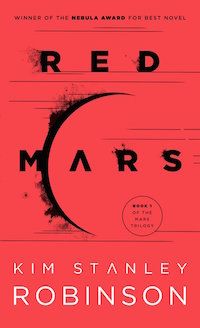
Best Sci-Fi Book Series With World-Building Focus
The following series did an exceptional job crafting, describing, and incorporating aspects of world-building. Pick one of these series if you are looking to escape the real world for a bit.
Void by Peter Hamilton
The Dreaming Void, The Temporal Void, The Evolutionary Void
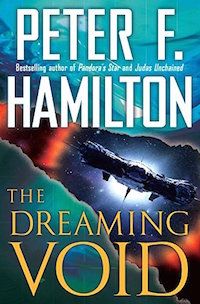
This series is part of the overarching Commonwealth Saga and is recommended for current or new fans of Hamilton.
Imperial Radch series by Ann Leckie
(Ancillary Justice, Ancillary Sword, Ancillary Mercy)
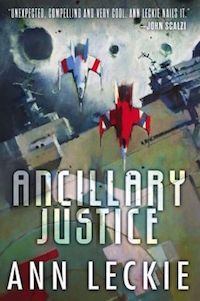
If you are interested in a space opera that doesn’t follow the formula, this should be your world-building pick.
Hyperion Cantos by Dan Simmons
(Hyperion, The Fall of Hyperion, Endymion, The Rise of Endymion)
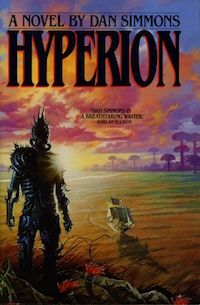
The several worlds visited in this series seemed extra vivid to me compared to other series. Even the ocean world and cloud world in this series were so perfectly done, they don’t compare to the versions that have been described many times in other series. (Even though this is a world-building pick, the plot is excellent in this series!)
Best Sci-Fi Book Series With Society and People Focus
One of the great parts of sci-fi is that you can choose to explore aspects of society of people in more depth simply by changing the technology available or the challenges they face. The following series shine because of their character development and exploration of societal challenges.
Hainish Cycle by Ursula K. Le Guin
Rocannon’s World, Planet of Exile, City of Illusions, The Left Hand of Darkness, The Word for World is Forest, The Dispossessed, Four Ways to Forgiveness, The Telling, The Birthday of the World and Other Stories
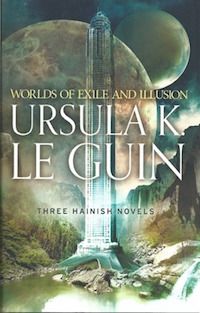
Note that each book can be read on its own. The Left Hand of Darkness and The Dispossessed are the most popular of the Hainish Cycle.
Silo trilogy by Hugh Howey
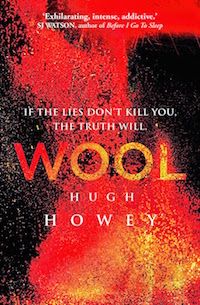
I appreciated the development of different characters and asking myself how I would act in various tough scenarios. Perfect for the reader who wants to explore themselves, in addition to behavior on the societal level.
Broken Earth trilogy by N.K. Jemisin
The Fifth Season, The Obelisk Gate, The Stone Sky
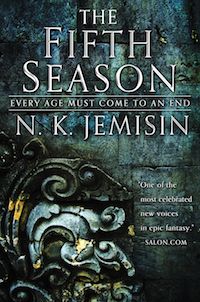
Every “fifth season” the super-continent Stillness undergoes dramatic and rapid climate change. Humans live in Comms, or communities, that must keep the skills of their members balanced. The key to surviving and minimizing the fifth seasons may be orogenes, who have the power to control energy in the Earth. However, orogenes are mercilessly hunted by Comms or exploited by the Fulcrum.
The nuanced relationships between the character in addition to the beautifully described power of the orogenes makes for a hard to put down read.
The Murderbot Diaries by Martha Wells
All Systems Red, Artificial Condition, Rogue Protocol, Exit Strategy
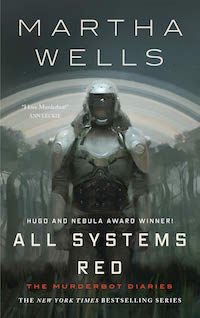
Murderbot is a security unit that has hacked its own governor module and now spends its free time marathoning any and all forms of entertainment. Adorably awkward, Murderbot realizes it must (wants?) to help the humans it’s with when the neighboring base goes dark.
Read this series when you’re up for a laugh or something lighter.
Dune Saga by Frank Herbert
Dune, Dune Messiah, Children of Dune, God Emperor of Dune, Heretics of Dune, Chapterhouse: Dune
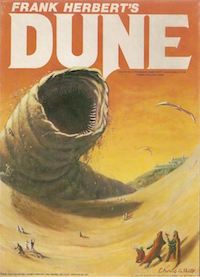
This is a Society and People read because politics, religion, ecology, technology, and emotions are all explored in depth. This is a very dialogue-based sci-fi series.
The Patternist series by Octavia Butler
(Chronological order/reverse publication order: Wild Seed, Mind of My Mind, Clay’s Ark, Patternmaster)
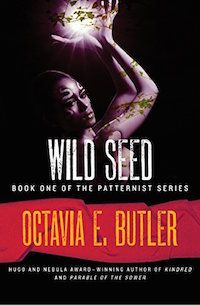
Oxford Time Travel series by Connie Willis
(Doomsday Book, To Say Nothing of the Dog, Blackout, All Clear)
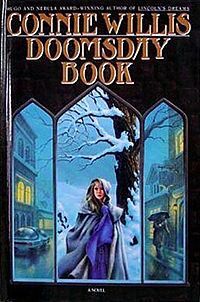
Willis has said that time travel is an inherently sad genre because human lives are ephemeral. The Oxford historians always return to a world where the people they were just with are already gone.
Best Sci-Fi Book Series With Aliens
The following series do an exceptionally excellent job of bringing alien races to life, from their totally extraterrestrial anatomy (no human lookalikes here) to the details of human behavior in response to alien life forms.
Xenogenesis Series by Octavia Butler
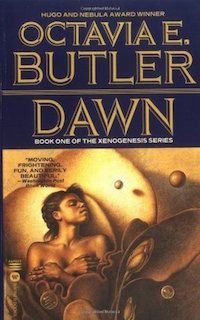
The Oankali plan to genetically merge with the humans. As you can imagine, this is extremely complicated.
Remembrance of Earth’s Past trilogy by Cixin Liu
(The Three Body Problem, The Dark Forest, Death’s End)
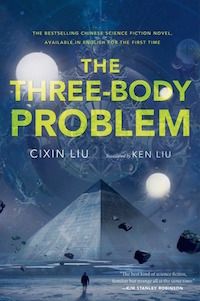
This series focuses on Earth’s struggle after discovering extra-terrestrial life. Humans discover and must adapt to the horrifying discovery of what it means to live in a galaxy with extraterrestrial life much more advanced than humans.
The various alien races featured are so different from each other and from anything that I would imagine growing up on Earth that I was left very curious how Liu first imagined them.
What are your favorite sci-fi book series and why? Leave them in the comments section!



